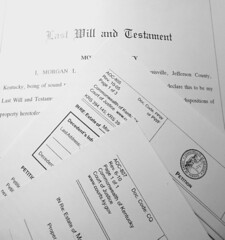Many Americans let out a sigh of relief when the American Taxpayer Relief Act of 2012 was finally signed into law. The signing of the act put an end to much of the uncertainty that previously surrounded estate planning where taxes are concerned. As a recent article explains, one consequence of this newfound certainty is that individuals who planned meticulously in order to avoid death taxes are now attempting to back-pedal .
One product that many individuals are now second-guessing is the Irrevocable Life Insurance Trust (“ILIT”). As the term “irrevocable” implies, ILITs are relatively inflexible. However, there are certain ways through which estate-planning attorneys can soften the terms of an ILIT.
Options such as adding a spousal access clause, adding a special trustee clause, or increasing the discretionary power of the trustee allow the trust creator to exercise more control over the trust. Some state governments have also attempted to make ILITs flexible by enacting “decanting” statutes that provide for the transfer of assets from an old ILIT to a new, less restrictive one.
If you would like to modify or revoke your ILIT, it is important to examine the originating documents carefully. Be sure to consider the legal, tax, financial, and insurance components of any planned adjustment. Importantly, any changes to your trust should comply with its terms and make financial sense.











